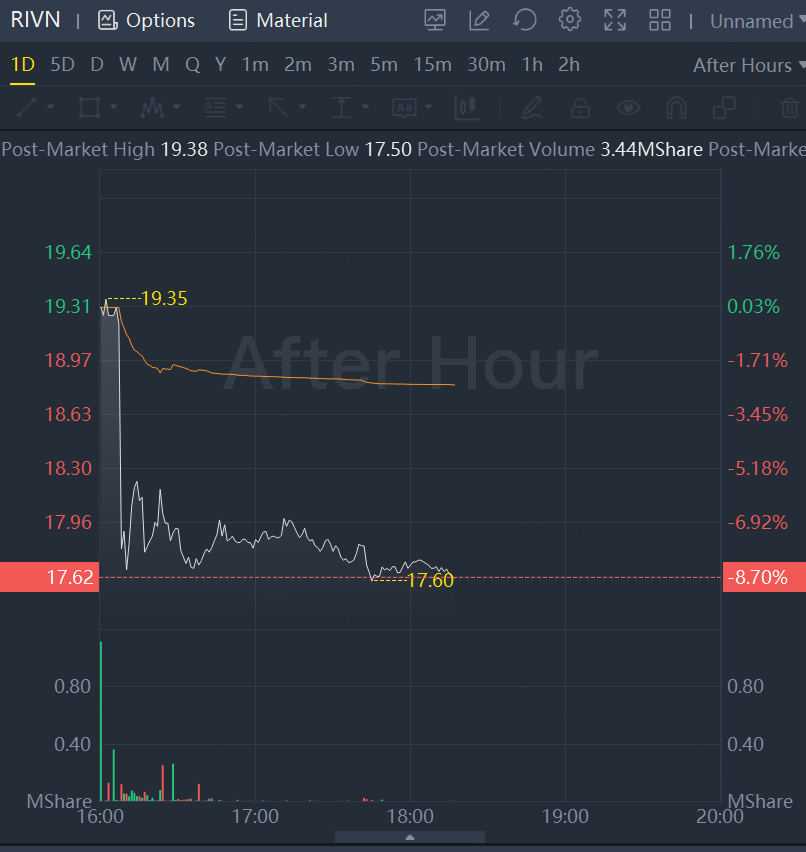Shares of Rivian Automotive Inc. dropped more than 8% in after-hours trading Tuesday after the electric-vehicle maker narrowed its quarterly loss but missed revenue expectations and revealed struggles with parts shortages and other manufacturing hiccups as it tried to ramp up production.
"The supply constraint is, by far and away, the biggest constraint," Rivian $(RIVN)$ Chief Executive RJ Scaringe said in a call with analysts after results.
Ongoing supply-chain problems continue to be "the main limiting factor of our production" and costs around expediting parts also took a toll, Rivian executives said in a letter to shareholders accompanying results.
The company faced "multiple days of lost production" due to the supplier shortages, and the "challenges" expected to persist into 2023.
Stock losses increased as the call got under way, with investors also struggling to digest Rivian's slight production miss for the year and a weaker-than-hoped-for 2023 production guidance.
Rivian lost $1.7 billion, or $1.87 a share, in the fourth quarter, compared with a loss of $2.5 billion, or $4.83 a share, in the same period last year. Revenue jumped to $663 million from $54 million a year ago.
FactSet consensus called for a loss of $1.96 a share on sales of $724 million for Rivian.
The EV maker lost $6.75 billion in 2022, up from a loss of $4.69 billion in 2021.
The company guided for the production of 50,000 vehicles in 2023. Rivian produced 24,337 vehicles in 2022, just under guidance of 25,000 vehicles for the year.
"The production guidance was disappointing and implies there will be a significant cut to 2023 revenue estimates," CFRA analyst Garrett Nelson told MarketWatch.
CFRA had a 2023 production estimate of 60,000 units, and Wall Street consensus was around 62,200 vehicles, Nelson said.
"The belief was that Rivian could do a lot better in 2023," the analyst said. Many on Wall Street expected that supply-chain issues were in the rear-view mirror, Nelson said.
In addition, Rivian for the first time did not provide an update on its vehicle reservations, raising a "red flag," Nelson said, especially as other EV makers such as Lucid Group Inc. (LCID)reported declining reservation counts.
In the call, Scaringe sidestepped a question about Rivian's order book, saying that despite rising interest rates and other demand-crimping factors, "the demand backlog we have is very robust."
Scaringe also said Rivian, like other auto makers, is in the middle of discussions about the "right sourcing" for lithium, which "could involve ownership positions" but no announcements as of yet.
Tesla Inc. $(TSLA)$ is reportedly looking to buy its own lithium-mining company
Rivian also continued to pay a premium for goods and spent money on expedited freight.
Rivian has yet to turn a profit after going public in November 2021 in an initial public offering that valued Rivian at nearly $90 billion and raised about $12 billion.
Shares of Rivian have declined about 71% in the past 12 months, which compares with losses of around 9% for the S&P 500 index .

